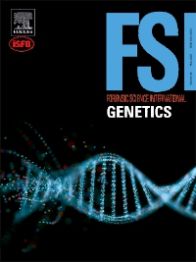Forensic Science International: Genetics
An international journal and the premier journal in the field dedicated to forensic genetics.An international journal and the premier journal in the field dedicated to forensic genetics.
Forensic Science International: Genetics is the premier journal in the field of Forensic Genetics. This branch of Forensic Science can be defined as the application of genetics to human and non-human material (in the sense of a science with the purpose of studying inherited characteristics for the analysis of inter- and intra-specific variations in populations) for the resolution of legal conflicts.
The scope of the journal includes:
- Forensic applications of human polymorphism.
- Testing of paternity and other family relationships, immigration cases, typing of biological stains and tissues from criminal casework, identification of human remains by DNA testing methodologies.
- Description of human polymorphisms of forensic interest, with special interest in DNA polymorphisms.
- Autosomal DNA polymorphisms, mini- and microsatellites (or short tandem repeats, STRs), single nucleotide polymorphisms (SNPs), X and Y chromosome polymorphisms, mtDNA polymorphisms, and any other type of DNA variation with potential forensic applications.
- Non-human DNA polymorphisms for crime scene investigation.
- Population genetics of human polymorphisms of forensic interest.
- Population data, especially from DNA polymorphisms of interest for the solution of forensic problems.
- DNA typing methodologies and strategies.
- Biostatistical methods in forensic genetics.
- Evaluation of DNA evidence in forensic problems (such as paternity or immigration cases, criminal casework, identification), classical and new statistical approaches.
- Standards in forensic genetics.
- Recommendations of regulatory bodies concerning methods, markers, interpretation or strategies or proposals for procedural or technical standards.
- Quality control.
- Quality control and quality assurance strategies, proficiency testing for DNA typing methodologies.
- Criminal DNA databases.
- Technical, legal and statistical issues.
- General ethical and legal issues related to forensic genetics.
Forensic Science International: Genetics adheres to strict ethical publication guidelines and actively supports a culture of inclusive and representative publication. For any submission enquiries, please contact the Editor-in-Chief.
The Forensic Science International journals offer comprehensive and pioneering coverage within the forensic sciences and beyond, disseminating ground-breaking discoveries, highly specialised research, and foundational science across the family of publications. The FSI portfolio comprises of:
- Forensic Science International
- Forensic Science International: Animals and Environments
- Forensic Science International: Digital Investigation
- Forensic Science International: Genetics
- Forensic Science International: Genetics Supplement Series
- Forensic Science International: Mind and Law
- Forensic Science International: Reports
- Forensic Science International: Synergy
The scope of the journal includes:
- Forensic applications of human polymorphism.
- Testing of paternity and other family relationships, immigration cases, typing of biological stains and tissues from criminal casework, identification of human remains by DNA testing methodologies.
- Description of human polymorphisms of forensic interest, with special interest in DNA polymorphisms.
- Autosomal DNA polymorphisms, mini- and microsatellites (or short tandem repeats, STRs), single nucleotide polymorphisms (SNPs), X and Y chromosome polymorphisms, mtDNA polymorphisms, and any other type of DNA variation with potential forensic applications.
- Non-human DNA polymorphisms for crime scene investigation.
- Population genetics of human polymorphisms of forensic interest.
- Population data, especially from DNA polymorphisms of interest for the solution of forensic problems.
- DNA typing methodologies and strategies.
- Biostatistical methods in forensic genetics.
- Evaluation of DNA evidence in forensic problems (such as paternity or immigration cases, criminal casework, identification), classical and new statistical approaches.
- Standards in forensic genetics.
- Recommendations of regulatory bodies concerning methods, markers, interpretation or strategies or proposals for procedural or technical standards.
- Quality control.
- Quality control and quality assurance strategies, proficiency testing for DNA typing methodologies.
- Criminal DNA databases.
- Technical, legal and statistical issues.
- General ethical and legal issues related to forensic genetics.
The Forensic Science International journals offer comprehensive and pioneering coverage within the forensic sciences and beyond, disseminating ground-breaking discoveries, highly specialised research, and foundational science across the family of publications. The FSI portfolio comprises of:
-
Forensic Science International -
Forensic Science International: Animals and Environments Forensic Science International: Digital Investigation Forensic Science International: Genetics Forensic Science International: Genetics Supplement Series Forensic Science International: Mind and Law Forensic Science International: Reports Forensic Science International: Synergy














